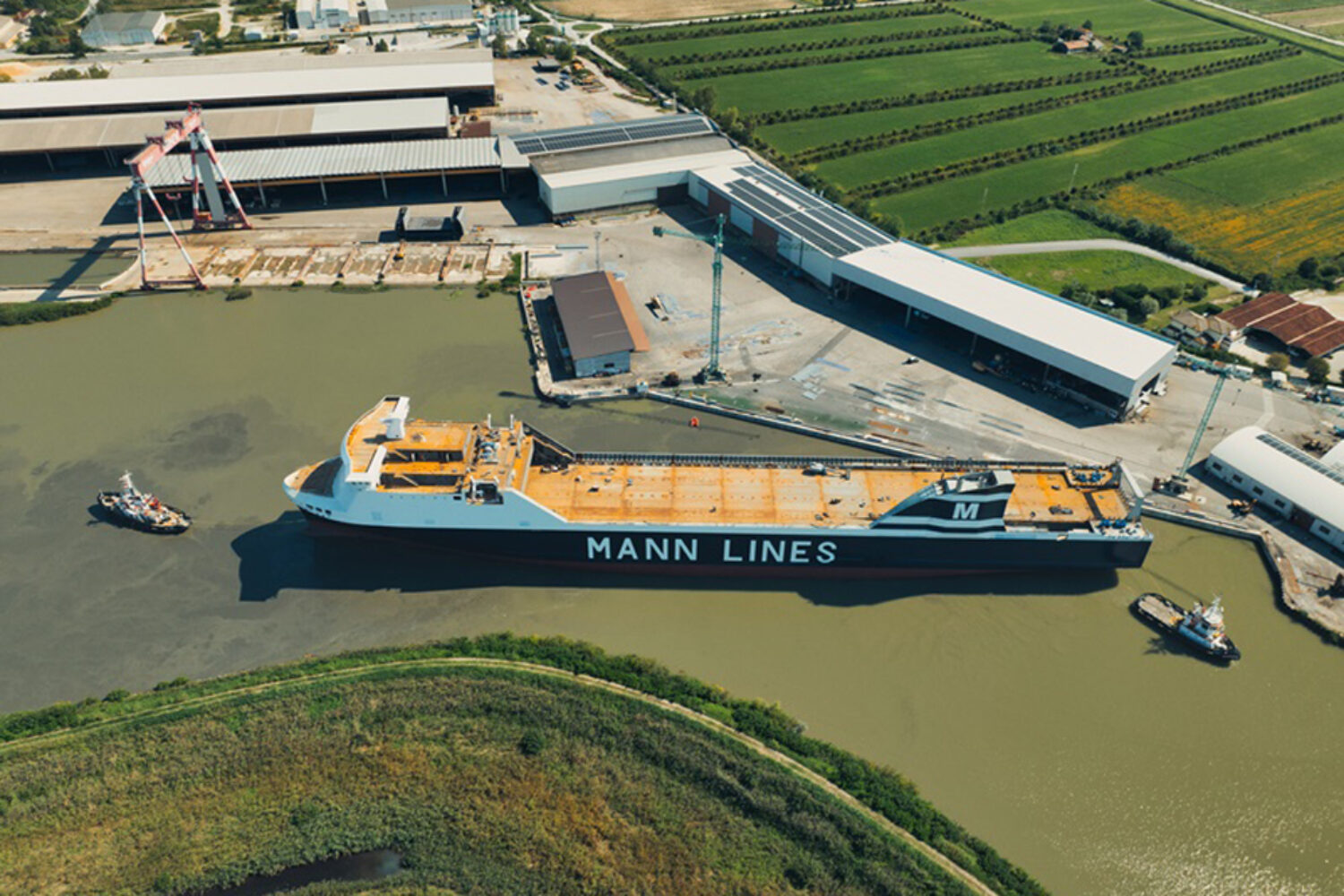A new RoRo cargo ship has been launched at the Italian shipyard Cantiere Navale Visentini in Porto Viro for the shipping company Mann Lines.
This as-yet-unnamed cargo ferry, which was designed by Trieste-based Studio Naos, will operate under a time charter for the Mann Lines shipping company after delivery in the second quarter of 2025, with the Italian Visentini Group remaining the owner of the ship.
The newbuild is a sister ship to the “ML Freya”, which was delivered by the same shipyard back in 2017 and has been in regular service between Turku, Paldiski, Cuxhaven, Bremerhaven, Harwich and Rotterdam ever since.
The as-yet-unnamed 203.4 m long and 26.2 m wide ship with ice class 1A has a capacity of 3,004 loading metres plus 196 cars on two vehicle decks, with the main deck having a loading height of 7 metres.
Mann Lines dispenses with sails and shore power
Two Wärtsilä engines, each with an output of 7,200 kW, generate the power for a maximum speed of 22 knots. The new RINA-classed ship can also run on “green” methanol.
The shipping company Mann Lines had initially examined the installation of a sail system, but then abandoned this plan. The use of shore power was also considered. However, of the six loading ports on the ship’s route, the Finnish port of Turku was the only one that would have been prepared to put this idea into practice. In addition, the shipping company points out that shore power is not really suitable for this ship, as it only stays in port for a short time and, therefore, does not have enough time to recharge.
The joint venture Argo-Mann Ferry Service (AMFS) was founded in 1992 by the shipping company Mann Lines and the Argo shipping company Richard Adler & Söhne from Bremen for the regular eight-day freight service across the North Sea, through the Kiel Canal to Finland. From February 1999, the existing service between Turku, Cuxhaven and Harwich was extended to Bremerhaven and Estonia with the 162 metre-long ro-ro ferry “Estraden” chartered by the Finnish shipping company Engship. Argo Reederei then largely withdrew from the 50-50 joint venture at the beginning of 2001. (CE)













